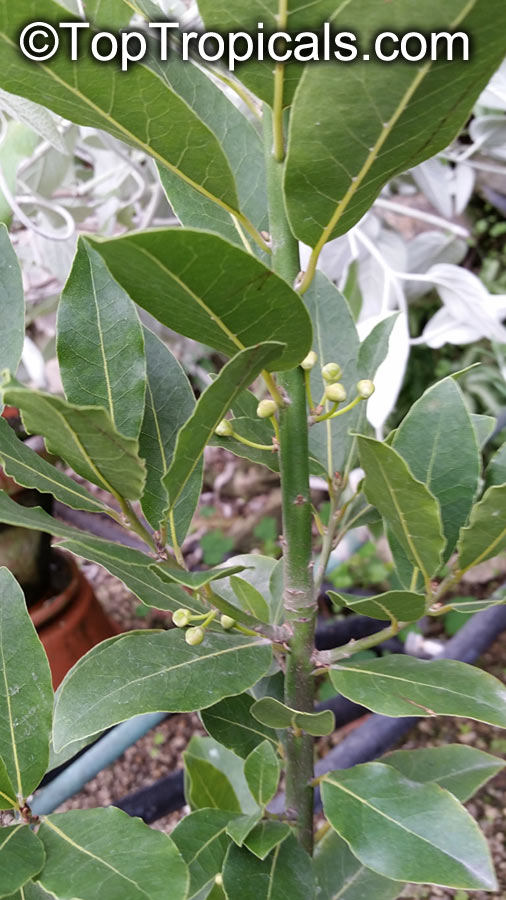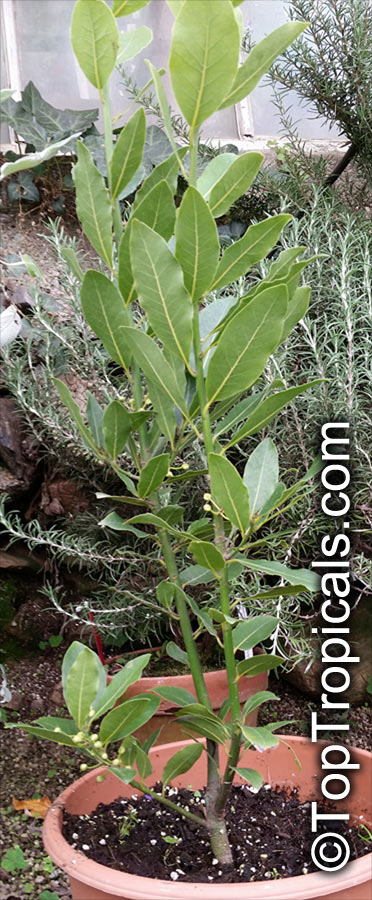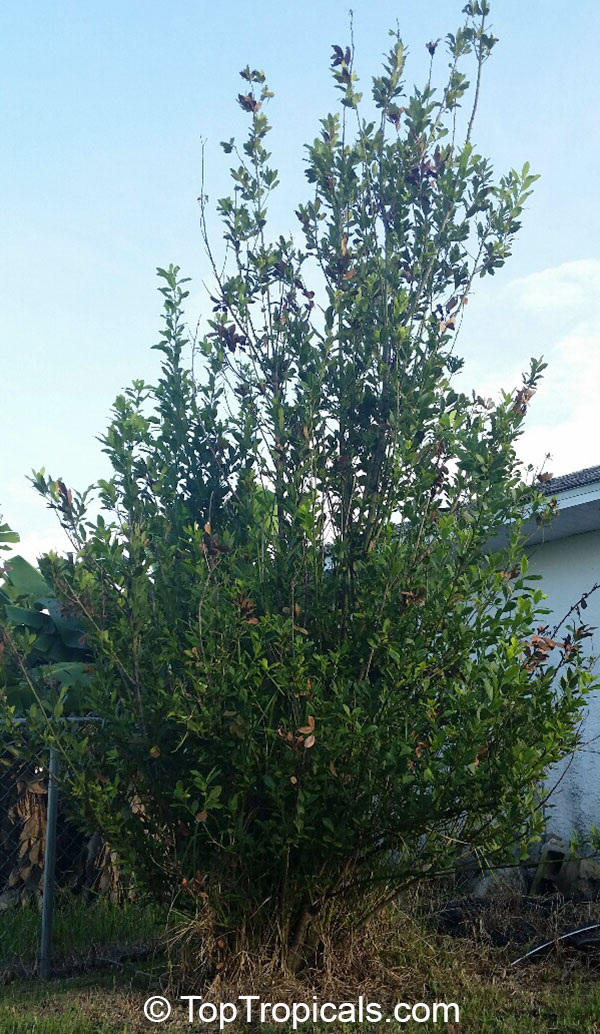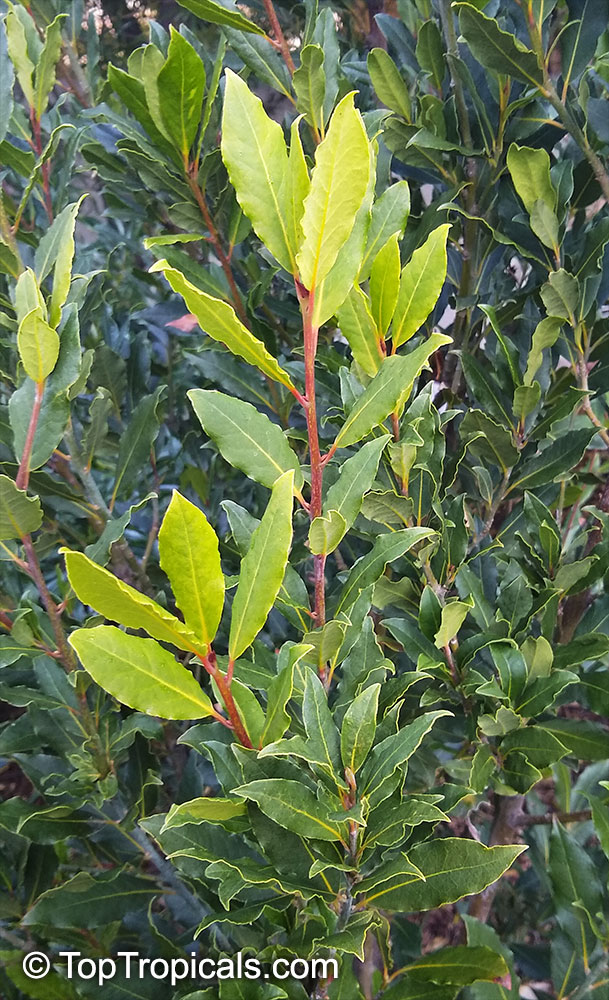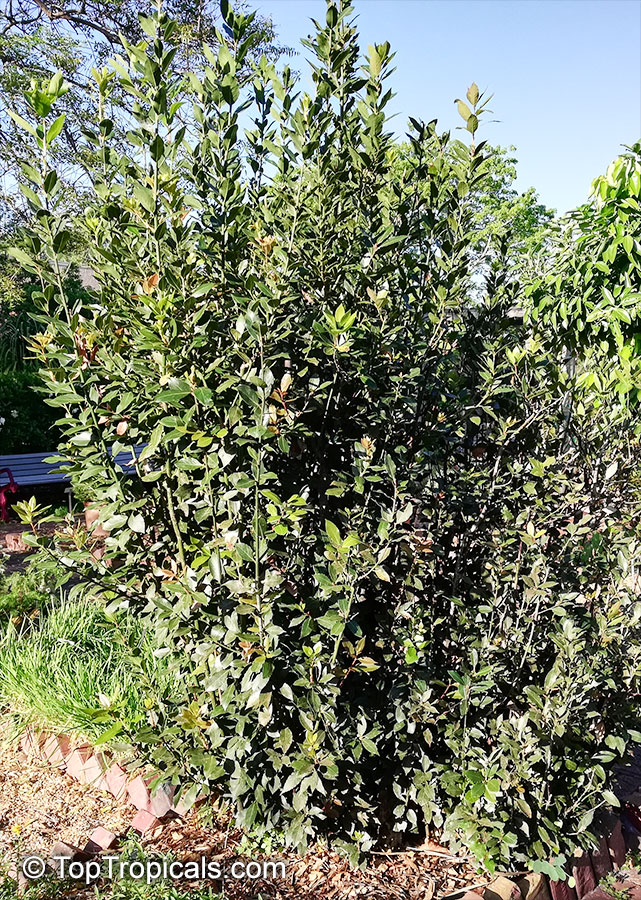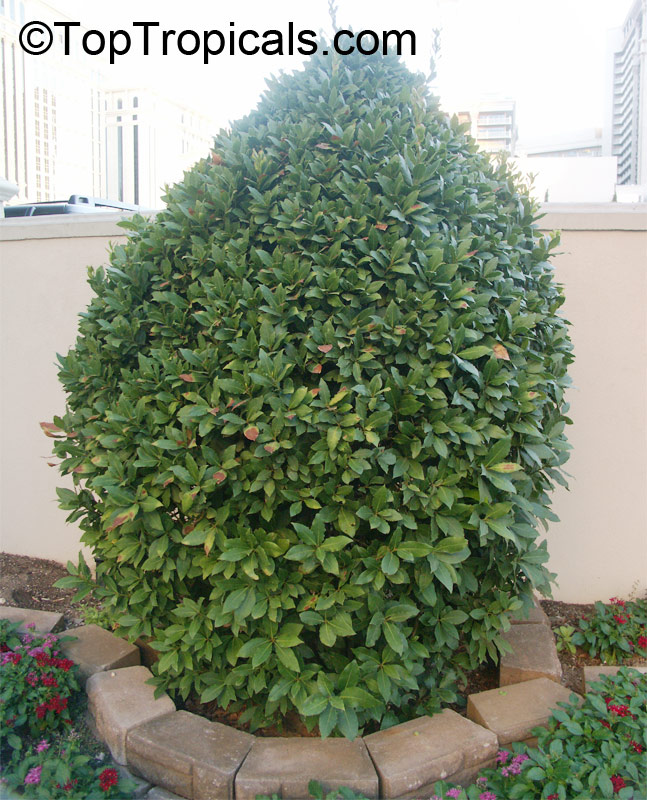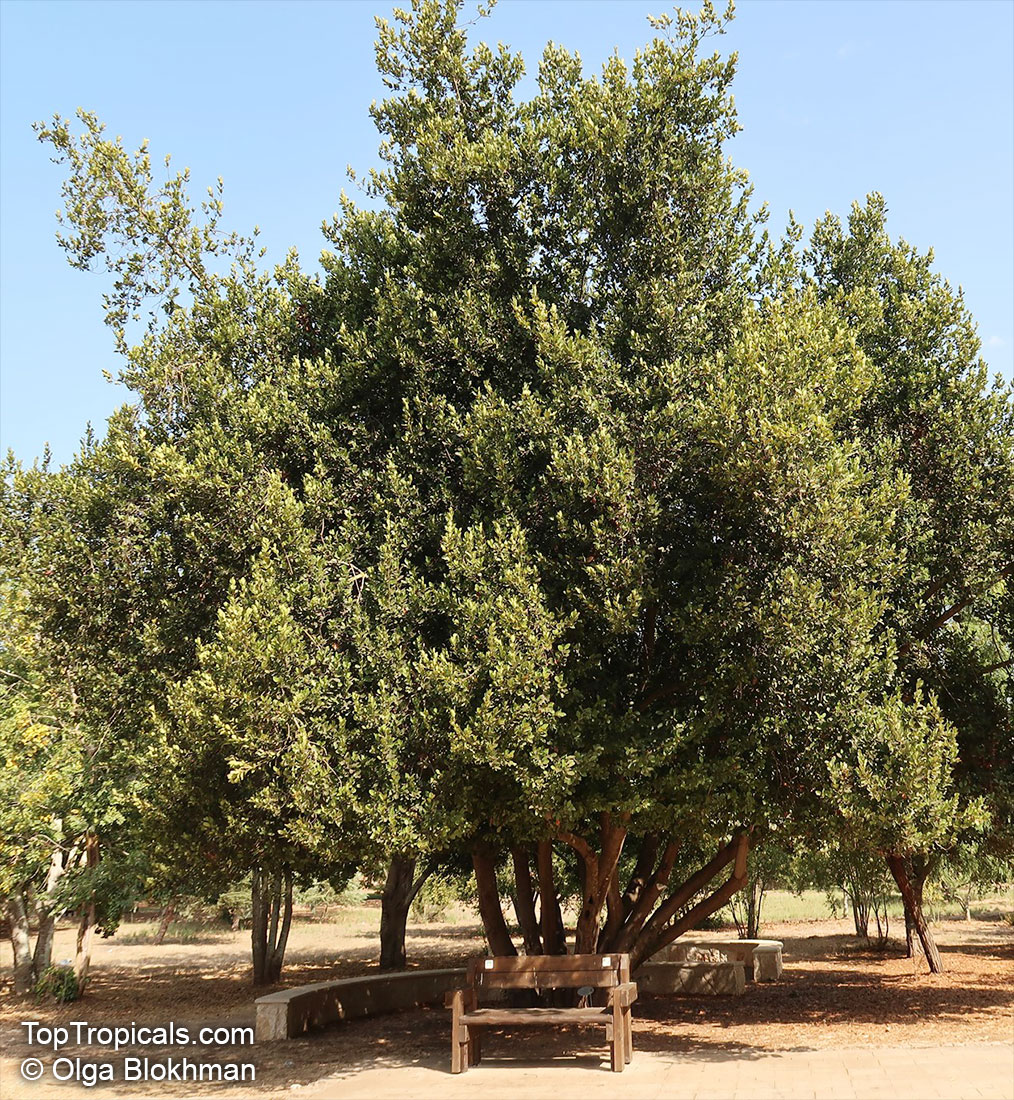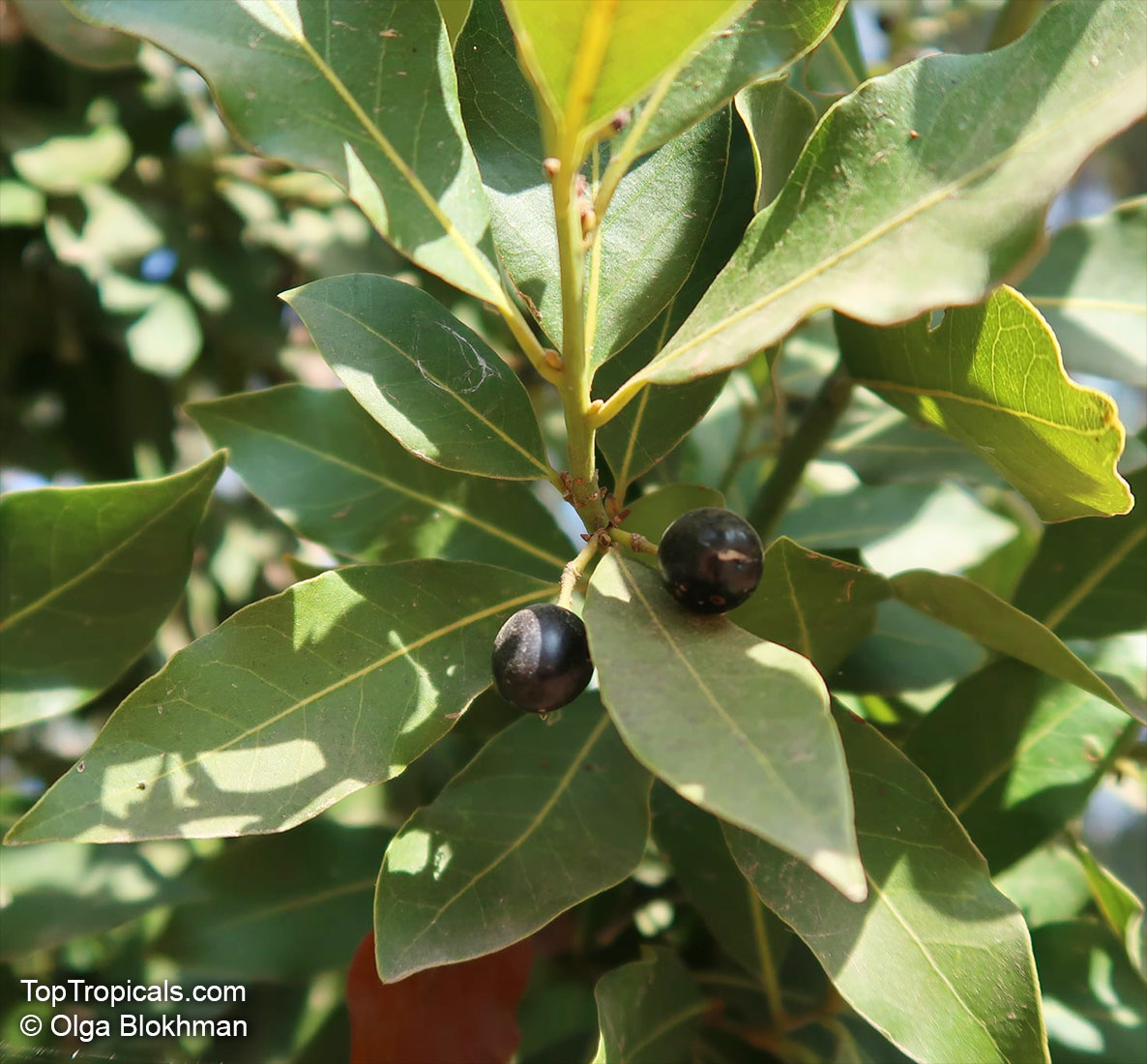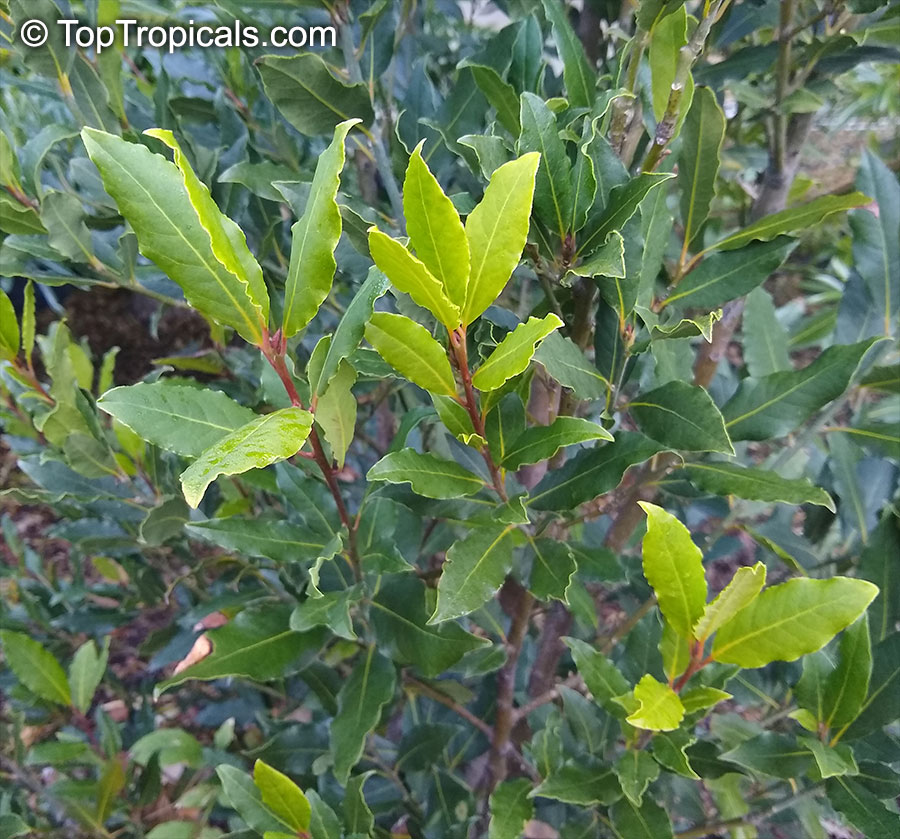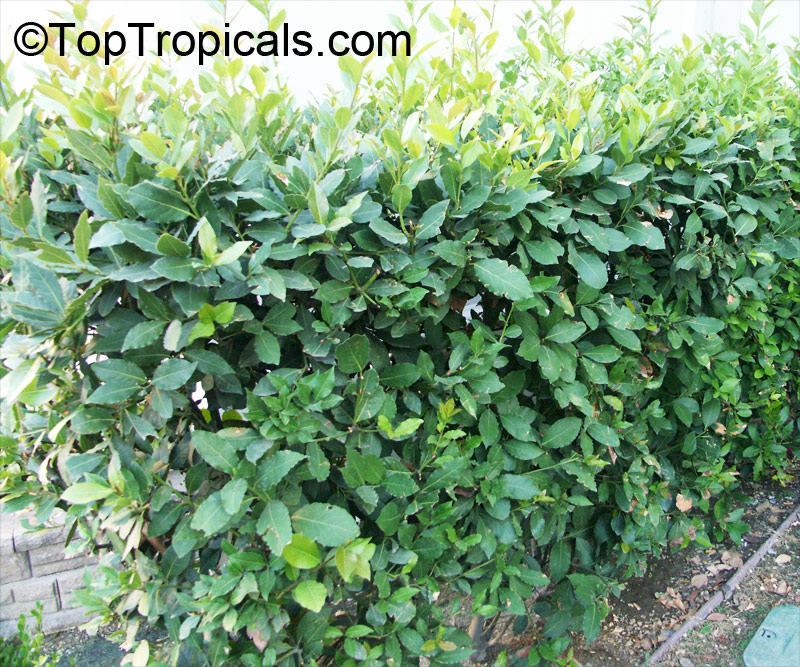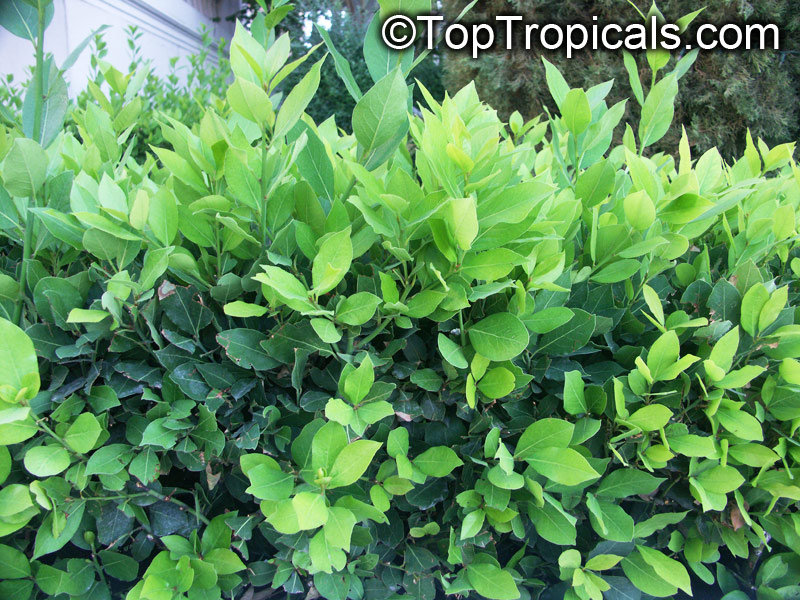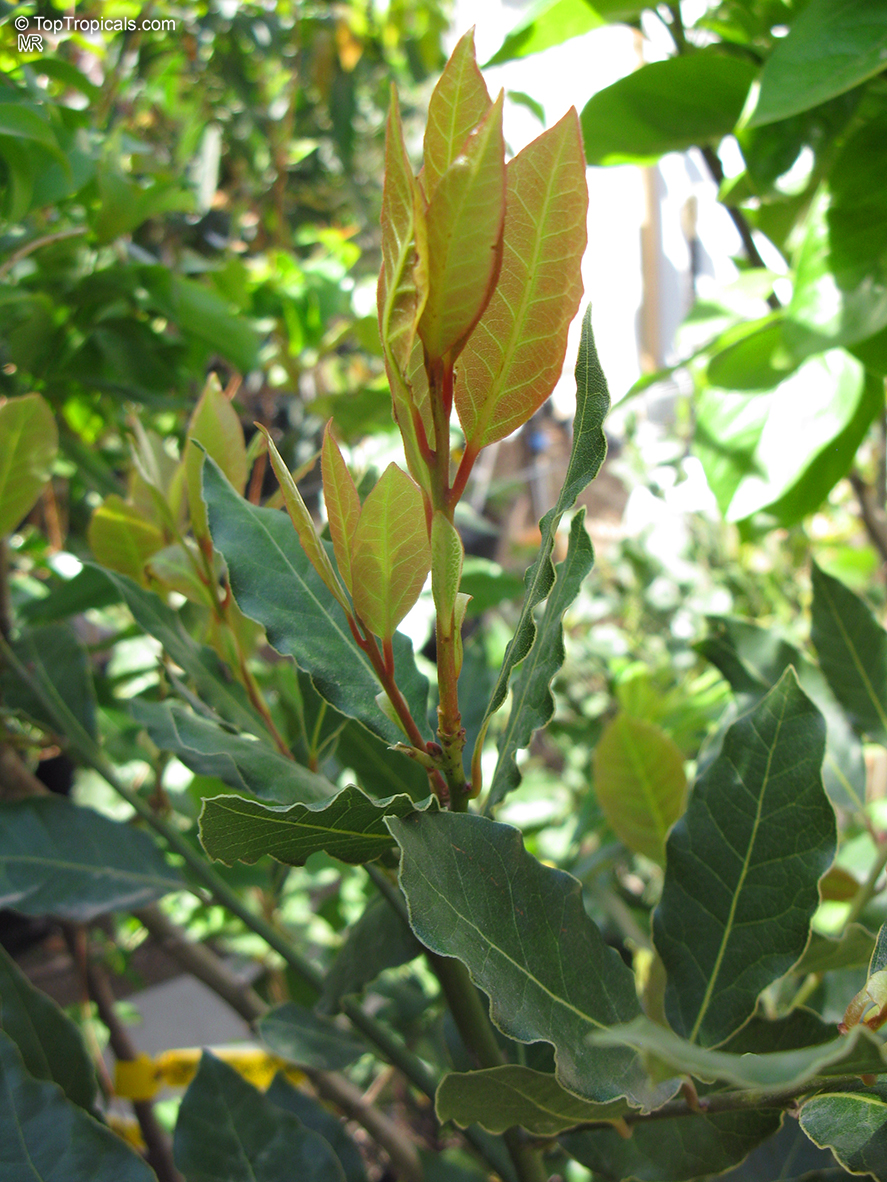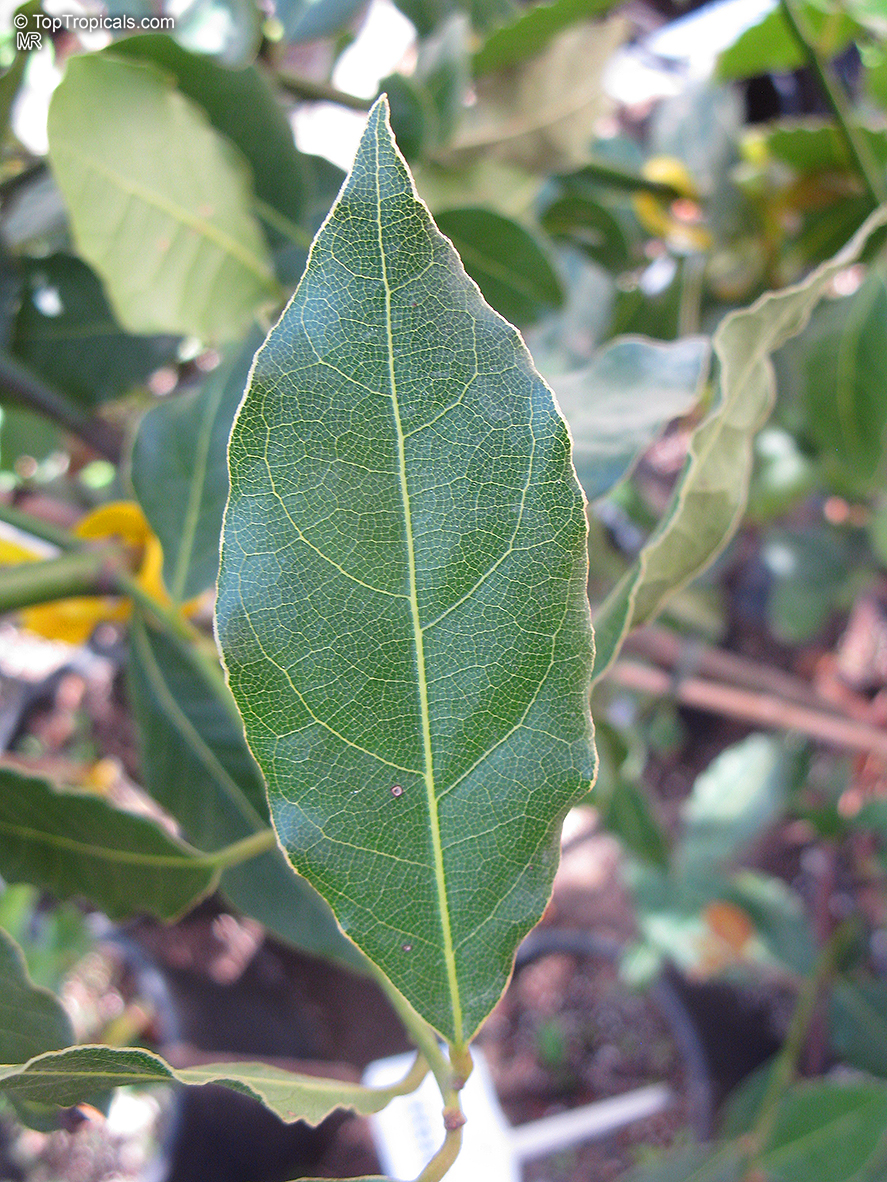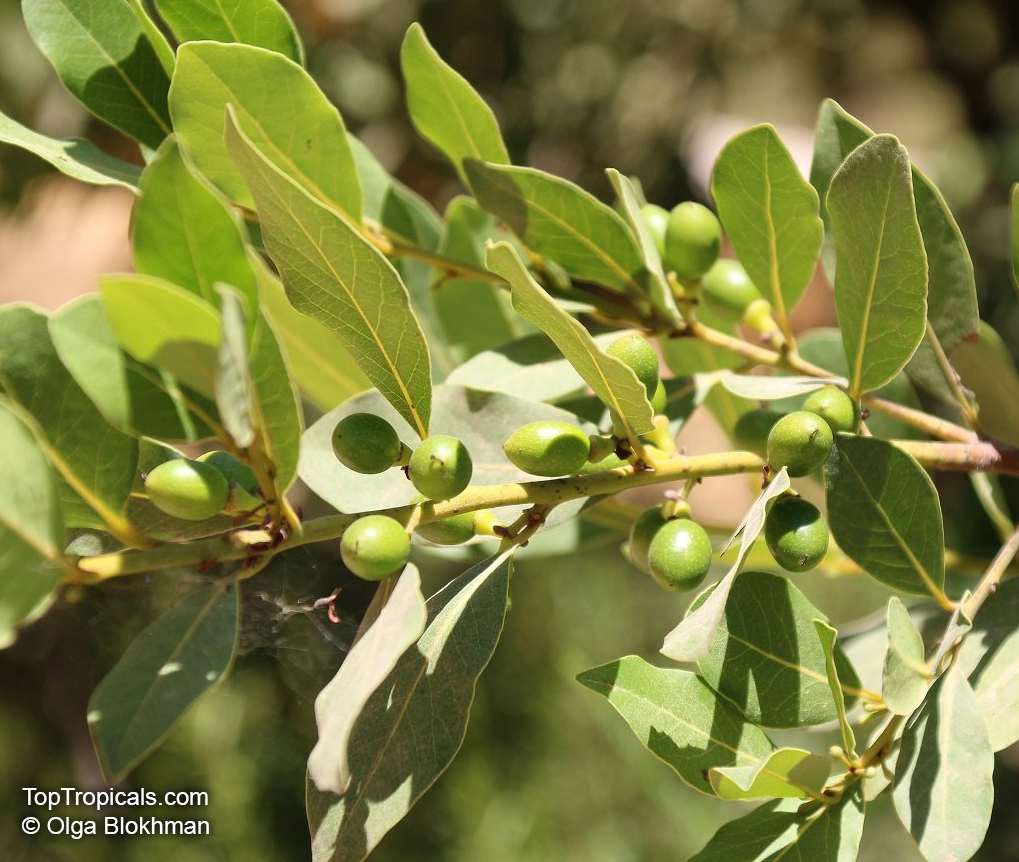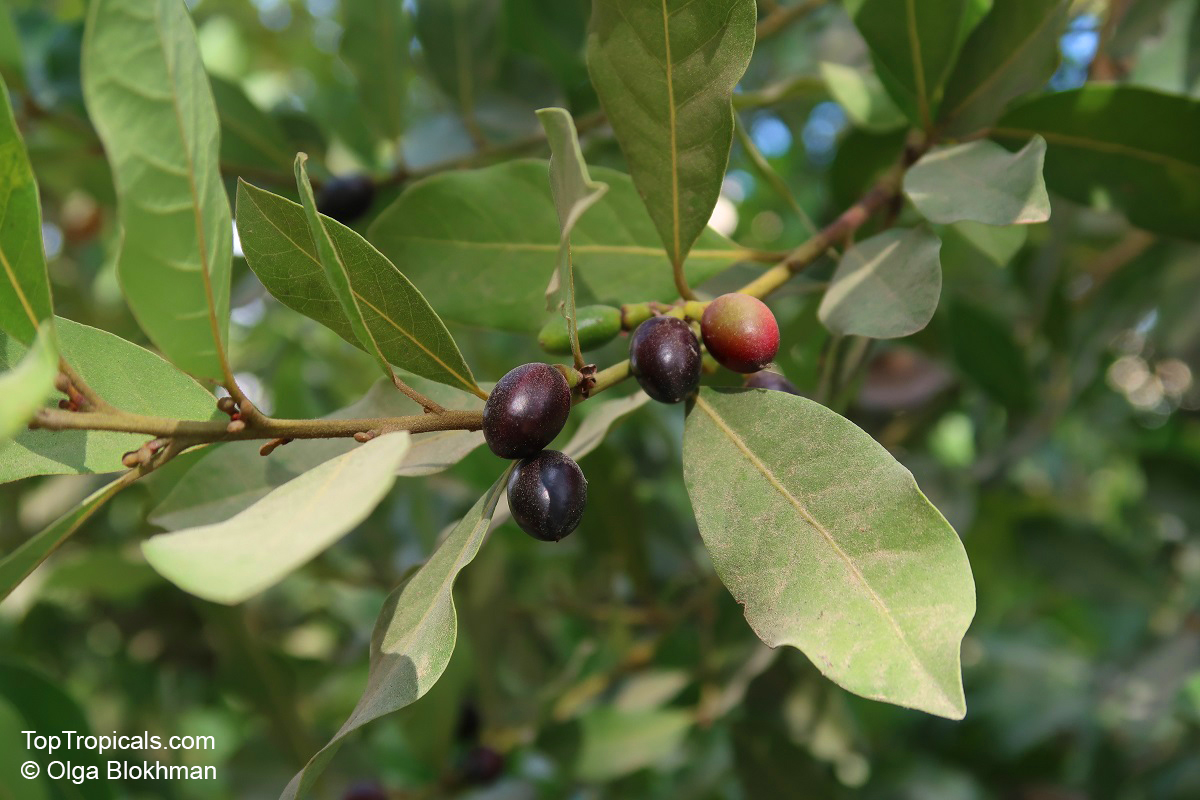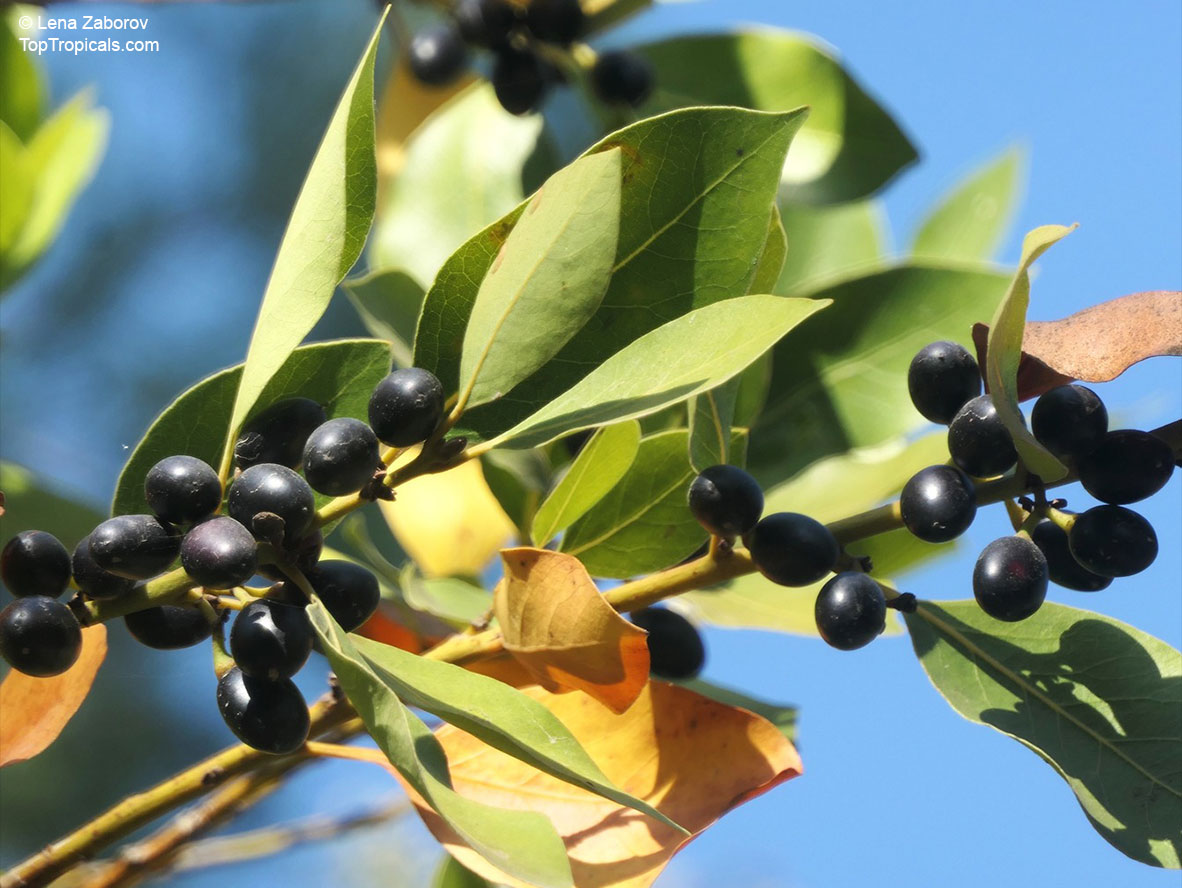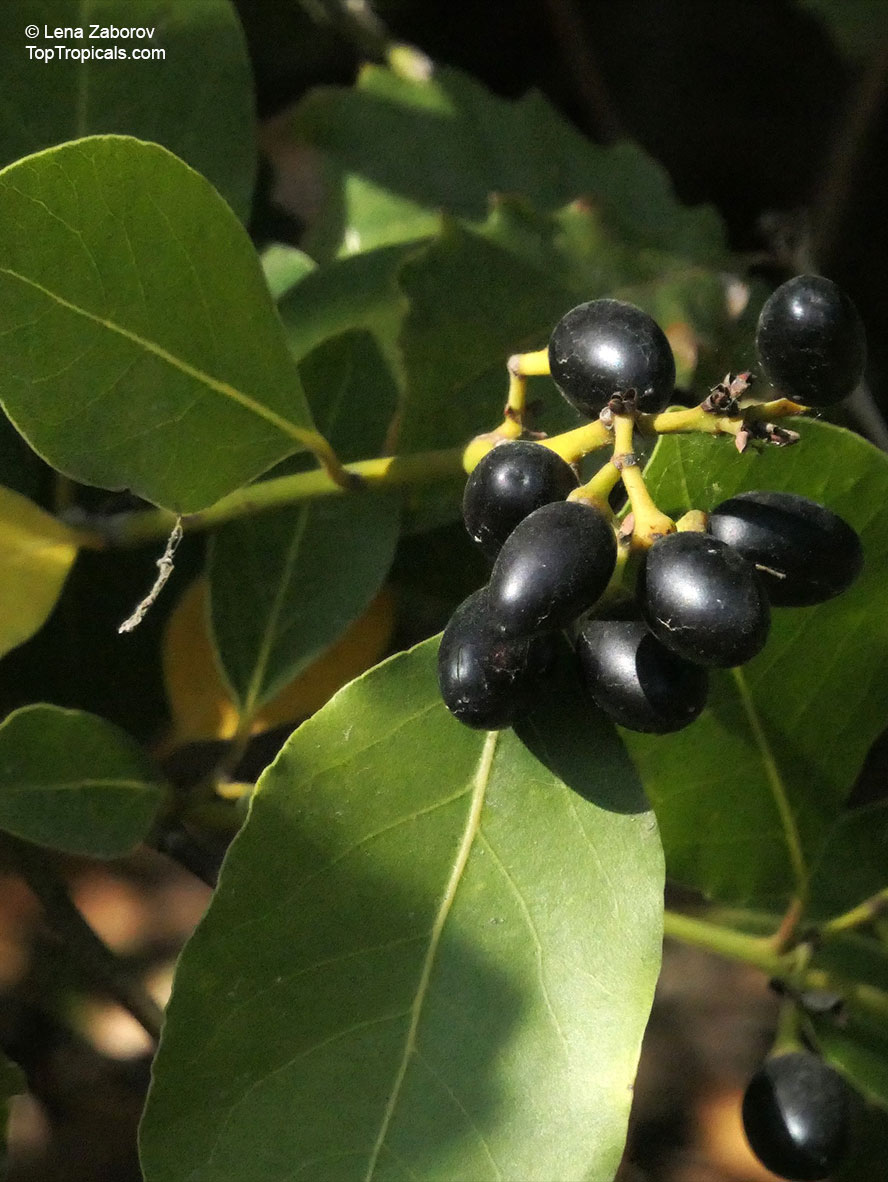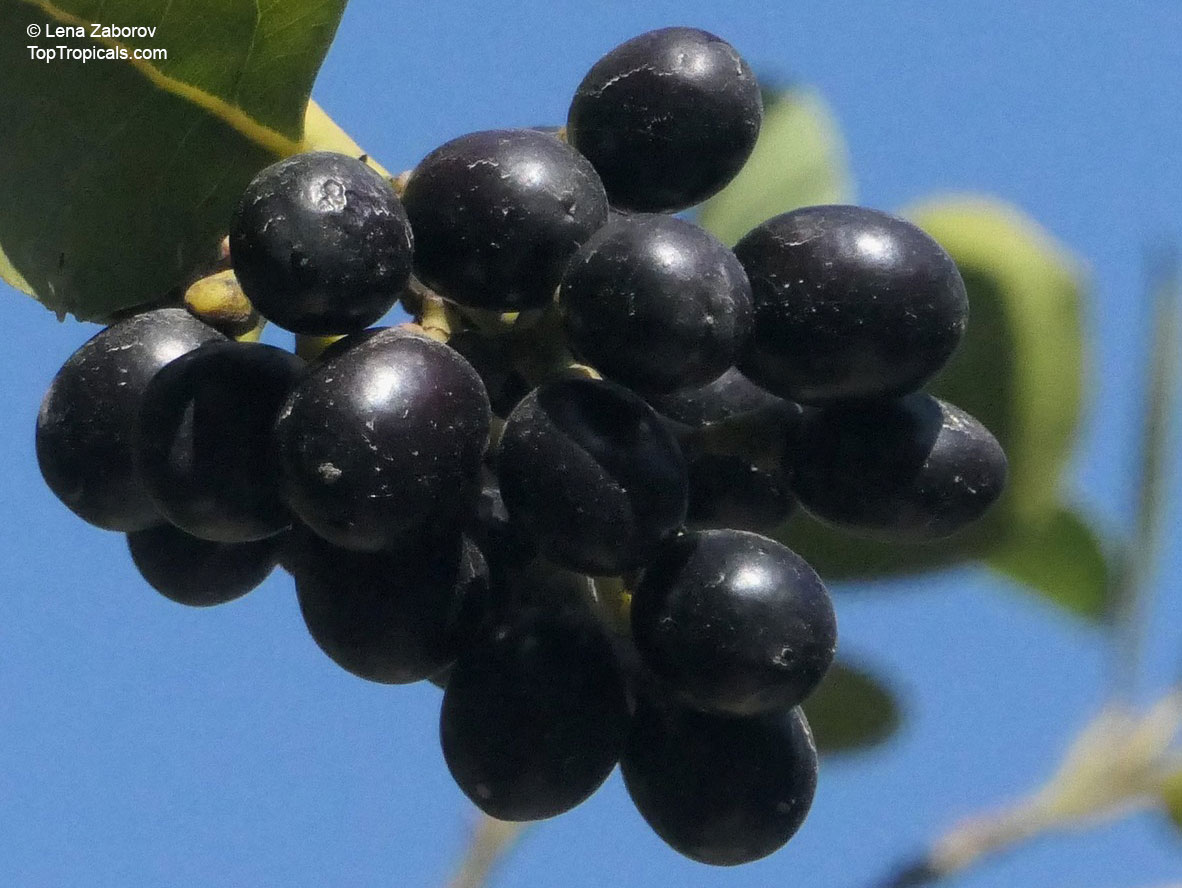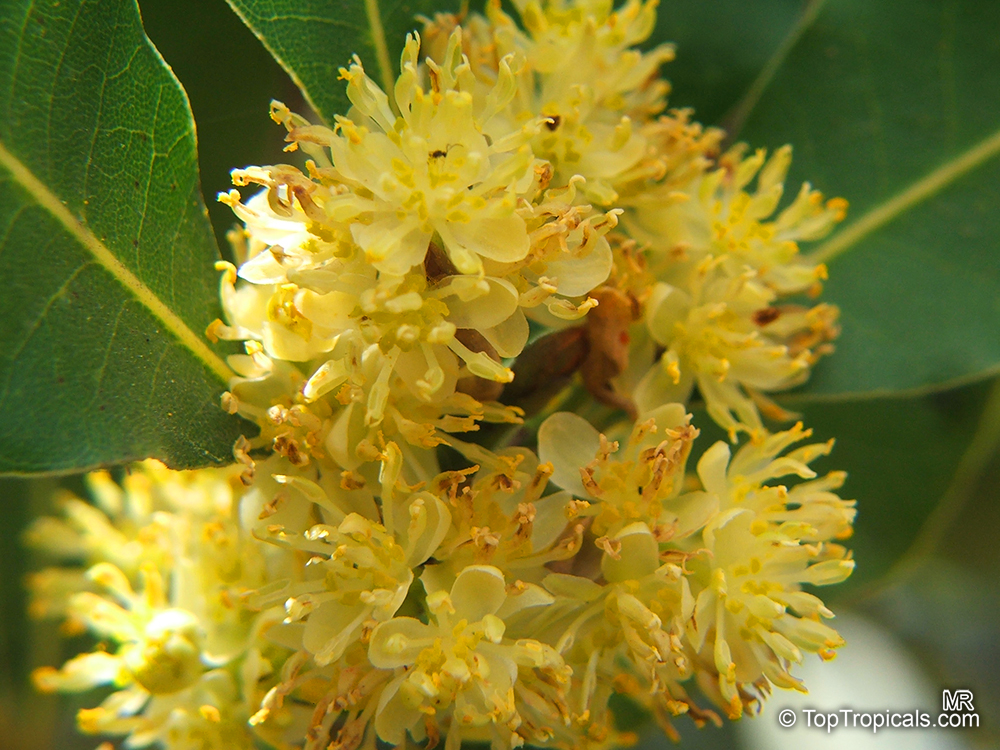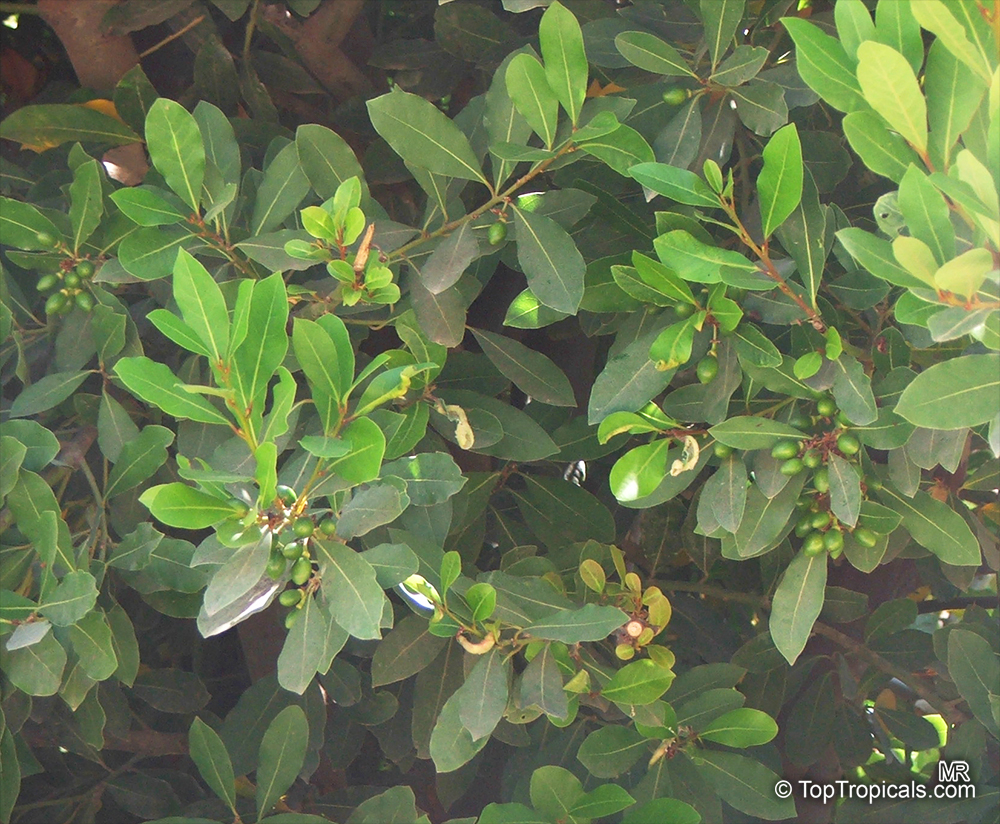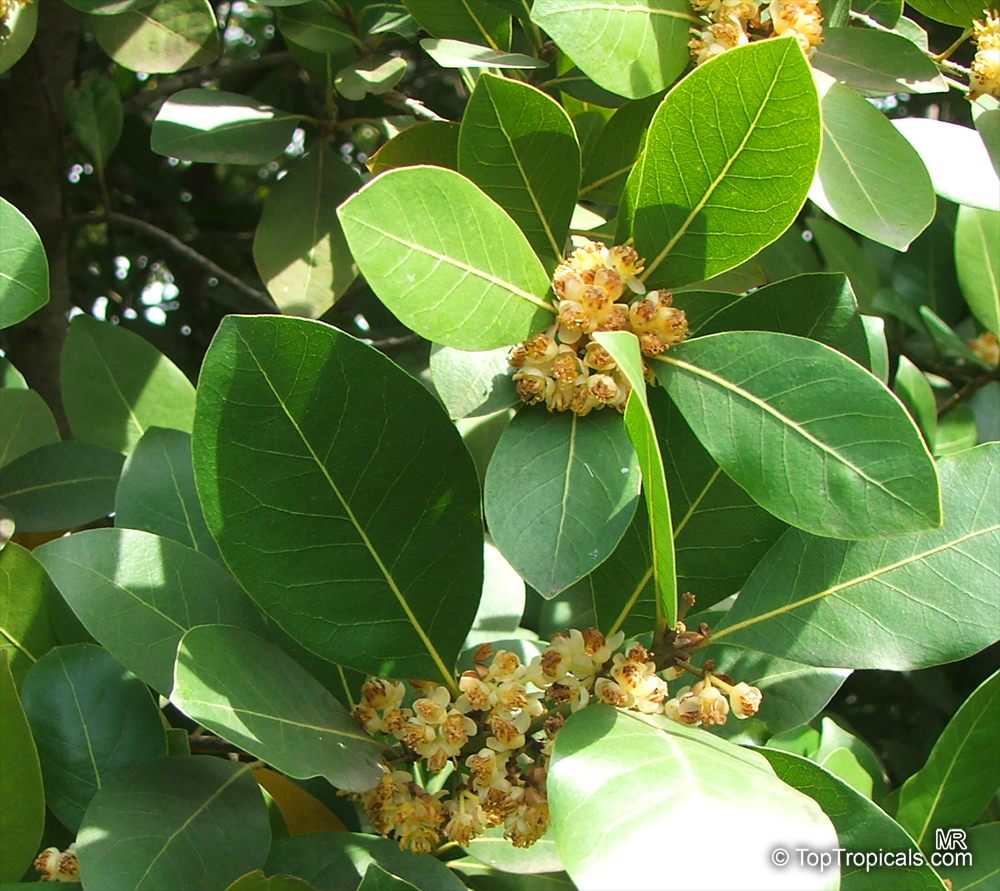Laurus nobilis (Bay Leaf)
Botanical name: Laurus nobilis
Common name: Bay Leaf
Family: Lauraceae
Origin: Asia Minor










Other common names: Apollo Bay Leaf, Bay, Bay Laurel, Grecian Laurel, Indian Bay, Laurel, Nobel Laurel, Poet's Laurel, Roman Laurel, Royal Laurel, Sweet Bay, Sweet Laurel, Wreath Laurel. From Asia Minor the plant was spread to the Mediterranean and then to other countries with similar climates. Grown successfully in Mediterranean-like climates, the Bay is a hardy evergreen shrub that grows wild or cultivated. In warm areas it can grow as high as 18 m (60 ft). Inconspicuous white flowers arrive in clusters, in May. The fruits are small, red-blue single-seeded berries that later turn black about 12 mm (1/2 in) in size. Propagation is best accomplished with the cuttings from shoots. Leaves can be harvested at any time. According to legend the Delphi oracle chewed bay leaves, or sniffed the smoke of burning leaves to promote her visionary trances. Bay, or laurel, was famed in ancient Greece and Rome. Emperors, heroes and poets wore wreaths of laurel leaves. The Greek word for laurel is dhafni, named for the myth of the nymph Daphne, who was changed into a laurel tree by Gaea, who transformed her to help her escape Apollo's attempted rape. Apollo made the tree sacred and thus it became a symbol of honor. The association with honor and glory continue today; we have poet laureates (Apollo was the God of poets), and bacca-laureate means "laurel berries" which signifies the completion of a bachelor degree. Doctors were also crowned with laurel, which was considered a cure-all. Triumphant athletes of ancient Greece were awarded laurel garlands and was given to winners at Olympic games since 776 BC Today, grand prix winners are bedecked with laurel wreaths. It was also believed that the laurel provided safety from the deities responsible for thunder and lightning. The Emperor Tiberius always wore a laurel wreath during thunderstorms. The bay leaf is oval, pointed and smooth, 2.5 - 8 cm (1 to 3 in) long. When fresh, the leaves are shiny and dark green on top with lighter undersides. Dried leaves should be whole and olive green. Brown leaves will have lost their flavor. Whole leaves are often used in cooking and crushed or ground leaves can be used for extra strength. Kept out of light in airtight containers the whole leave will retain flavor for over two years. Bay leaves are widely used throughout the world. It may be best known in bouquets garnis or used similarly in soups, sauces, stews, daubes and courts-bouillon's, an appropriate seasoning for fish, meat and poultry. Bay leaf is often included as a pickling spice. Bay leaves and berries have been used for their astringent, carminative, diaphoretic, digestive, diuretic, emetic and stomachic properties. Bay Oil, or Oil of Bays (Oleum Lauri) is used in liniments for bruising and sprains. In the Middle Ages it was believed to induce abortions and to have many magical qualities. It was once used to keep moths away, owing to the leafs lauric acid content which gives it insecticidal properties.
Similar plants: Laurus nobilis (Bay Leaf)
Recommended Fertilizer: SUNSHINE Robusta - Rapid Growth Booster
